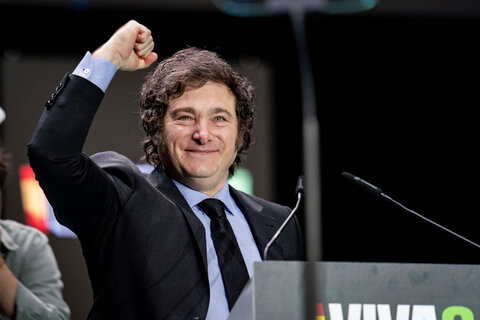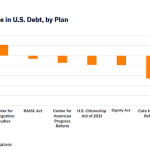
Ian Vásquez
Today, December 10, marks the one-year anniversary of Javier Milei in office. The Argentine president was elected promising a paradigm shift that would return his country to the classical liberalism that made it one of the richest countries in the world a century ago.
With that ambitious goal in mind, Milei has achieved much more than most people thought possible in such a short period of time. Such is the case that The Economist approvingly declared, “Milei’s first year holds lessons for the rest of the world.”
It’s worth remembering that when Milei assumed the presidency, Argentina was in the midst of a deepening crisis. This crisis was the result of 20 years of mostly Peronist rule and 80 years of a corporatist economic and political system that strengthened as time went by. Milei inherited a country suffering from more than 200% inflation in 2023, 40% poverty, a fiscal and quasi-fiscal deficit of 15% of GDP, a huge and growing public debt, a bankrupt central bank, and a shrinking economy.
So Milei’s message of freedom and the need for reform is understandable. But he is often misrepresented or misperceived. In fact, as The Economist observes,
“The left detests him and the Trumpian right embraces him, but he truly belongs to neither group. He has shown that the continual expansion of the state is not inevitable. And he is a principled rebuke to opportunistic populism, of the sort practised by Donald Trump. Mr Milei believes in free trade and free markets, not protectionism; fiscal discipline, not reckless borrowing; and, instead of spinning popular fantasies, brutal public truth-telling.”
To address the crisis, Milei has prioritized economic stability, telling Argentines that they will feel more pain before things get better but that there is no better path than thorough reform. The government immediately stopped spending more than it had, and the central bank subsequently stopped printing money. Milei cut spending by 30% and produced a fiscal surplus after his first month in office. Monthly inflation fell from 25% in December last year to 2.7% in October. Central bank debt was transferred to the Treasury, where it is being managed more transparently and on better terms.
Thus, Argentina has not only avoided default but has also generated growing confidence in its economy. Its country risk declined from over 2,100 points in January to around 735 points now. The confidence is also due to hundreds of deregulations that began with a mega-decree last December and the creation of the Ministry of Deregulation in July, which announces deregulations almost daily. We calculated that in his first year in office, Milei has issued some 672 regulatory reforms. That’s 1.84 reforms per day.
The economy has begun to recover, especially in certain sectors such as agriculture and energy. Real wages are improving. Poverty rose, as expected, to 55% in the first quarter. But it has started to fall and has reached 49%, according to a Di Tella University study.
Milei remains a popular president. After falling a bit, his popularity has increased in recent months and is at 52.3%, according to the Tendencias consulting firm.
Much more still needs to be done. After all, Milei started with a highly repressed economy. Argentina’s place in the Fraser Institute’s index of economic freedom was 159 out of 165 countries for 2022. Argentina still has a closed economy with barriers to trade and tight capital and exchange controls. Milei wants to open the economy once it stabilizes further and only then dollarize it and abolish the central bank.
Such measures would be welcomed sooner rather than later and would increase confidence in the economy. No doubt the economy is already in good enough shape to eliminate capital controls and start dollarization without creating too much turbulence in the short term.
The change that Milei has initiated has not only been economic and structural. It has also been cultural. Milei has promoted a shift in mentality away from the socialist and statist ideals that created the Argentine crisis and toward one that is supportive of civil society and the principles on which it relies, including tolerance, equality before the law, freedom, and individual responsibility. A new Reason documentary does a fine job highlighting the battle of ideas that Milei is waging and what’s at stake:
At a time when so many countries are moving in an illiberal direction, Milei has so far provided a salutary example of a better way forward.





